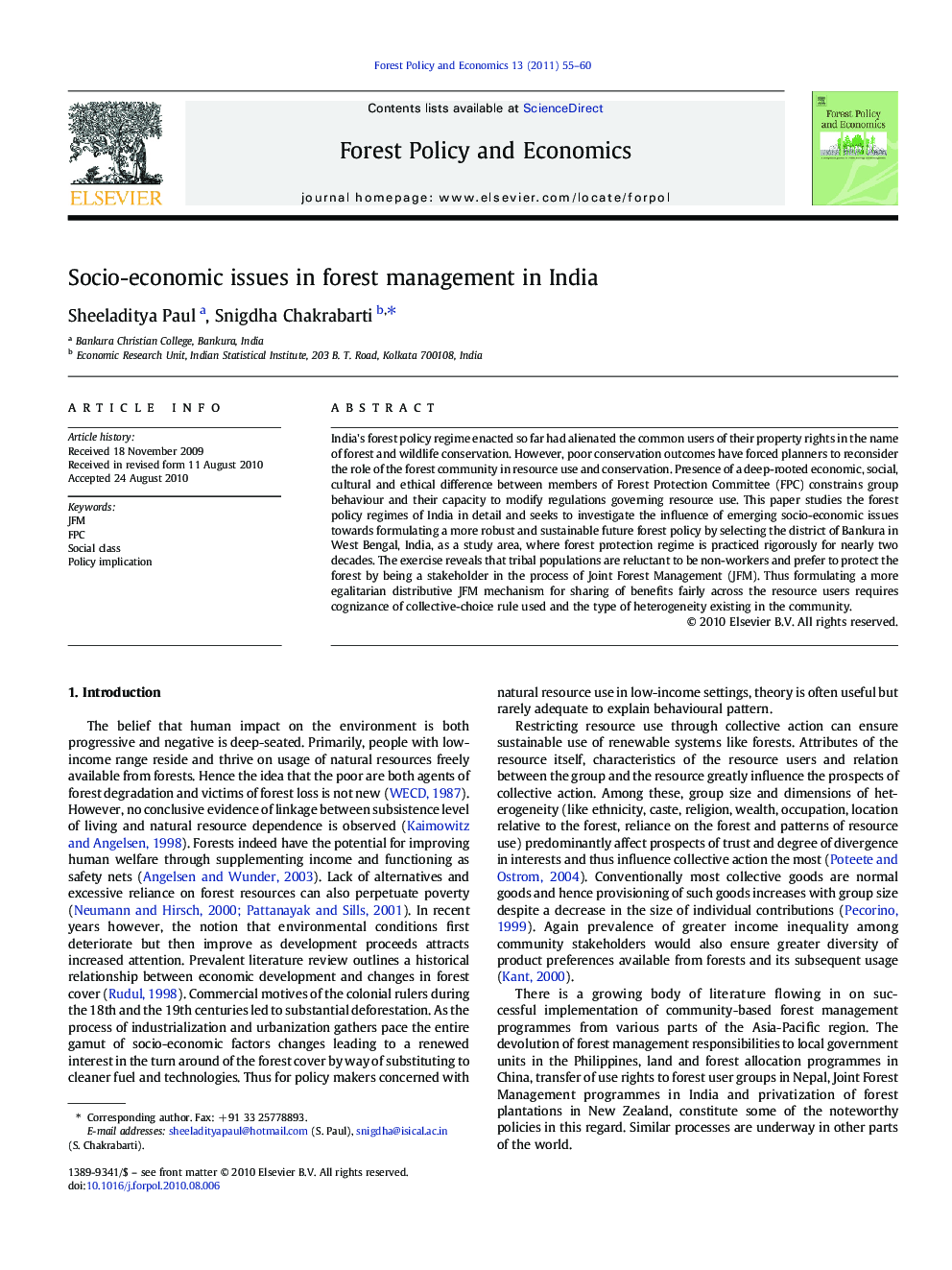| کد مقاله | کد نشریه | سال انتشار | مقاله انگلیسی | نسخه تمام متن |
|---|---|---|---|---|
| 91203 | 159761 | 2011 | 6 صفحه PDF | دانلود رایگان |

India's forest policy regime enacted so far had alienated the common users of their property rights in the name of forest and wildlife conservation. However, poor conservation outcomes have forced planners to reconsider the role of the forest community in resource use and conservation. Presence of a deep-rooted economic, social, cultural and ethical difference between members of Forest Protection Committee (FPC) constrains group behaviour and their capacity to modify regulations governing resource use. This paper studies the forest policy regimes of India in detail and seeks to investigate the influence of emerging socio-economic issues towards formulating a more robust and sustainable future forest policy by selecting the district of Bankura in West Bengal, India, as a study area, where forest protection regime is practiced rigorously for nearly two decades. The exercise reveals that tribal populations are reluctant to be non-workers and prefer to protect the forest by being a stakeholder in the process of Joint Forest Management (JFM). Thus formulating a more egalitarian distributive JFM mechanism for sharing of benefits fairly across the resource users requires cognizance of collective-choice rule used and the type of heterogeneity existing in the community.
Research Highlights
► Equity by fragmenting larger FPCs into smaller homogeneous groups is a right step.
► Non-forest wage works/self-employment sectors help reduce the depletion rate.
► Effective protection requires partnership between forest department and communities.
Journal: Forest Policy and Economics - Volume 13, Issue 1, January 2011, Pages 55–60